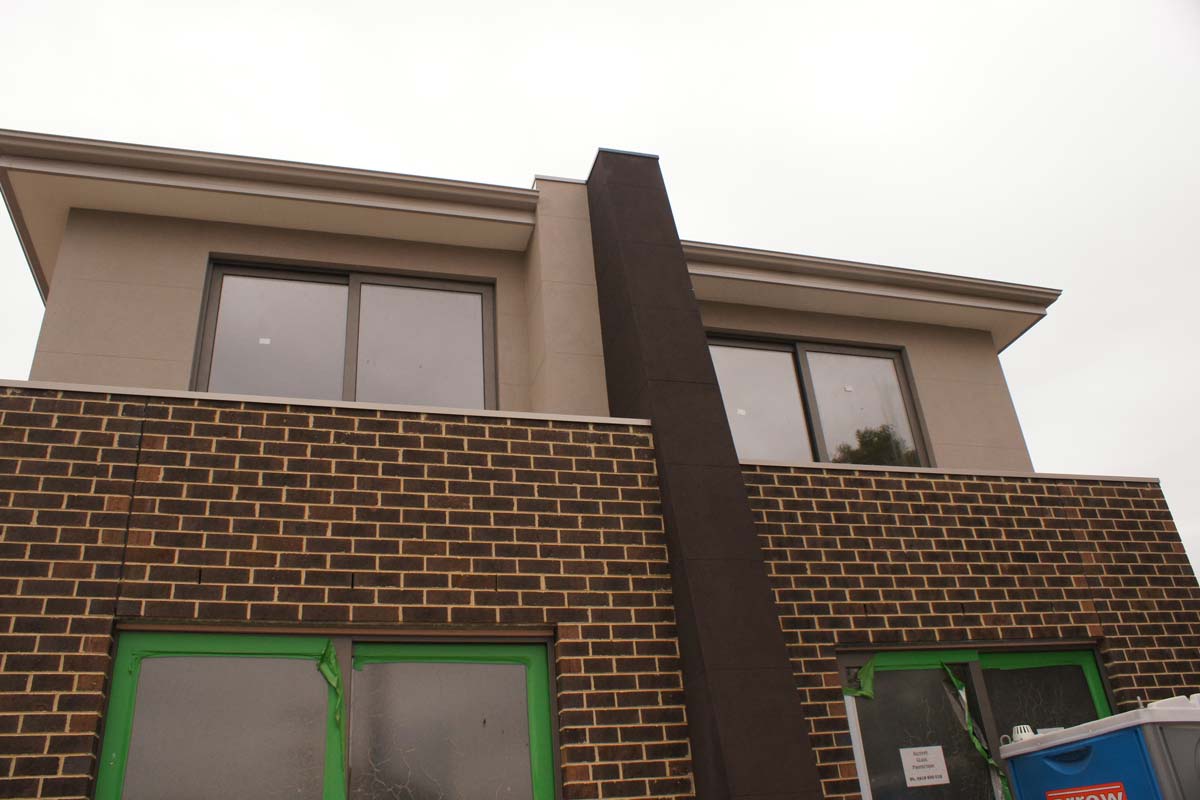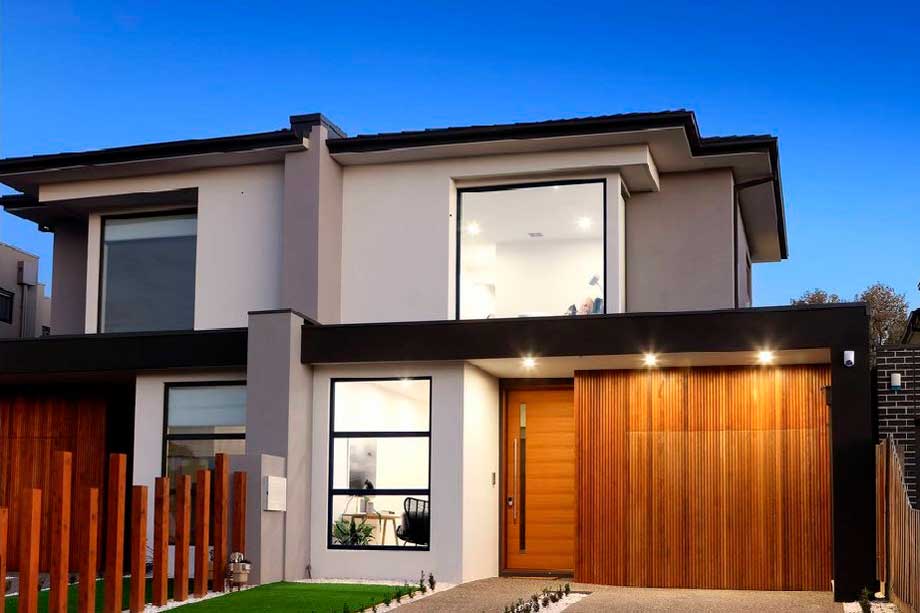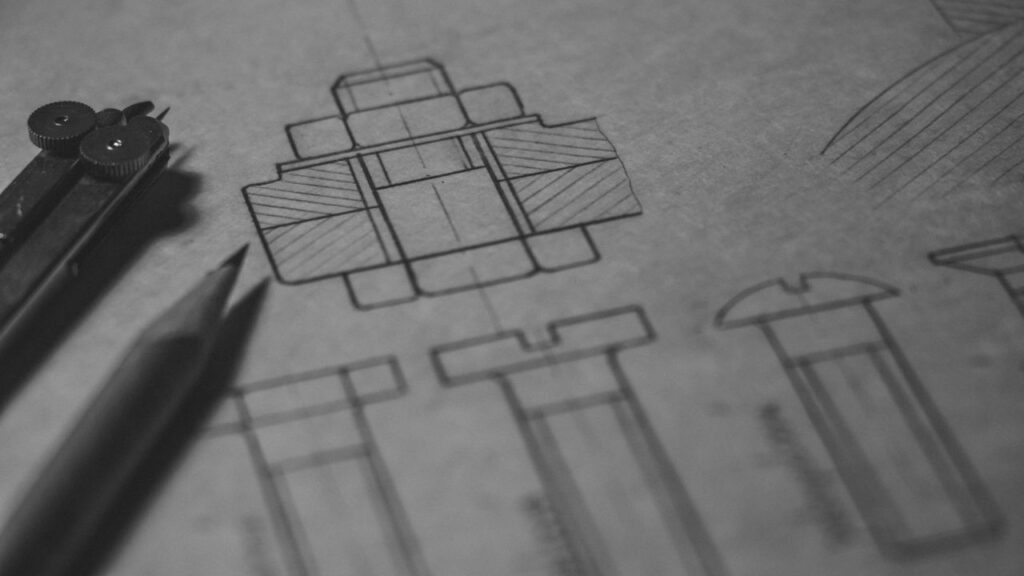Do you want to construct your own house? There are many paths to take and stakeholders to make, making it difficult to see how everything fits together.
Come with us as we investigate the dwelling that will be built on your land, from the selection of materials and furnishings to the building of sturdy foundations.
We'll discuss the possible customisations and offer advice to make your project go smoothly.
This essay is useful if you want to construct a home that is both energy-efficient and gives you complete creative control over its design.

Findings From A House Site
It would help if you had a piece of land to construct before you could even think about designing and constructing a house. Even this initial step can be challenging.
If you're in the market for some land, here are some things to remember.
Quality Control Constraints
Restrictive covenants, written into a deed, define how and what can be built on a piece of property.
First and foremost, keep it easy: Have a look!
You could be setting yourself up to fail by not familiarising yourself with the limitations on your property by the title. After all, you wouldn't want to waste your money on a plot of property that would never be put to good use!
A deed restriction could prevent you from constructing a home larger than 2,000 square feet, even though you would prefer to do so. You'll have to keep looking for a suitable building site somewhere.
Look for a community that does not have deed restrictions if that is something you find objectionable.
Development Infrastructure
Subdivisions are the smaller pieces of land created when a larger land area is broken down into smaller pieces for easier development.
Make sure the subdivision you're looking at has a solid strategy for future growth before purchasing a lot there.
What characteristics make a successful subdivision layout?
The following are necessary components:
- Be sure the land has indeed been researched and is suitable for building on, constructing roads, etc., by commissioning a geotechnical study.
- The developer has conducted a phase 1 or stage 2 environmental investigation, guaranteeing that all properties have clean titles and no environmental hazards. (There are no abandoned oil wells, landfills, etc., on the land.)
- Drainage plans are drawn out in advance.
- There are well-defined plans for the installation of water and sewage infrastructure. (Remember that you can't put a septic tank or water well within 30 m of one other. Without a proper subdivision plan, certain properties may not be serviced by a water well or septic.
Just make sure you enquire about everything listed above before purchasing a property. It would be unfortunate to shell out money for a package only to realise later that you were not a good fit.
Places In Flood Plains
Whenever there is a body of water nearby, the land in its immediate vicinity is at risk of being flooded.
It would help if you always enquire about a floodway certificate when purchasing land. If you want to be certain that your lot falls inside a floodplain, you can check the certificate's status.
It would be best if you avoided flood zones at all costs. Repairing and cleaning up after a flood is a huge hassle.
You should do further research and look for another piece of land if the one you're contemplating is in a flood zone.
If a house has long-term neighbours, it may have even more information concerning flooding.
Even though a piece of property is not technically located inside a flood plain, it may be impacted by flooding. There is a good chance that long-term neighbours are aware of all this, and they can provide valuable insight into whether or not the lots you are considering is suitable.
It's also important to ensure the land around the house drains properly. Long-term, the effects of water pooling on your property will be negative. Inadequate drainage is the leading cause of concrete slab failures.
Utilities In The House
The greater the distance utilities must be run, the more money they will cost.
In Texas, for instance, homeowners can have their power for nothing (up to 150 feet) if it is run overhead, but they will have to pay to run it underground.
Simply put, the greater the distance that utility lines must go, the higher the associated costs. Long runs of utilities like water, sewer, and electricity can drive up the price of a home.
Is the price justified? It depends on personal taste. Compared to a home located 50 feet away from the road, one located 200 feet away is far more peaceful and private. Yet, the expense of installing utility lines is reduced for a home located 50 feet from the street.
The key is to gather as much information as possible before choosing. The cost of utility feeds should be factored into your final decision.
Roads And Driveways
Driveways, like utility lines, become more expensive the further they stretch.
Before committing to a design, it's a good idea to sketch out the location and cost of your ideal driveway. Evaluate your vehicle's usability in both wet and dry driving conditions. You don't want your driveway to become dangerous due to wet weather (such as flooding or mud) or cold weather (such as ice and slippery conditions).
How Do You Calculate Your Budget While Constructing Your Own Home?
Choosing a precise budget for your new house depends on some factors. When deciding on a reasonable budget, most homebuyers should consider the following.
A mortgage broker or banker could instruct you to add 15–20% to your estimated home purchase price if they decide to finance the purchase through them. There are many moving parts in design and construction, and naturally, certain details will get overlooked.
It's also possible to have a full shift of taste for materials midway through construction. Like, do you need landscaping at this minute? How about tiling the bathroom?
Your monthly lifestyle needs to be taken into account as well.
- What is your monthly food budget like?
- Tell me about your memberships. (Hulu, cable, and electricity)
- Have you booked and paid for any upcoming vacations?
While discussing finances with a professional builder may be awkward, doing so early on can allow them to guide you towards cost-effective decisions.

What To Look For When Choosing A Custom House Builder
Almost as crucial as picking the proper plot of land is finding the right builder to construct your dream home there.
If you hire the wrong function Object() { [native code] }, you'll have nothing but trouble.
If you hire the correct one, building a house will be a breeze.
So what qualities do you seek out in a reliable contractor? Let's check out a few topics to think about:
Contractor With Complete Service And One-Stop Shopping
When it comes to services, some builders merely provide the bare minimum.
They might not have the means to put in a septic tank or a well, for instance.
Finding a builder who can be there for you from the planning stages to completion is the most convenient option.
Be sure the home builder can help you with the following in particular:
- Taking Stock of the Land
- Work on the access road, septic system, wells, land, and building pads.
- Acknowledgement from the ACC (architectural control assistance)
- Allow for takeovers
- Design hub - make smart, cost-effective decisions about your home's aesthetic details before construction begins.
- Loan Servicing
Hiring a general contractor that can handle every step of the custom home building process is a huge time saver.
Assessment And Preparation Of Lot Sites
A builder should help you with the evaluation and preparation of the lot site, as we have already discussed.
So what does that look like?
Your builder should initially visit the site where your future house will stand to help you assess your requirements.
Although it is important to examine drawings or representations of the lot, viewing the lot in person is necessary for an accurate assessment. Your builder should have some good ideas for your desired features after viewing the land.
They might be able to advise you on where to put your house and other structures, where to put a pool, or how to incorporate one into your overall design. They should also advise you on where to put things like septic tanks, water wells, pools, and utility lines. They've been in your shoes before, so you can probably trust their recommendations.
Home Quality Expectations
Finding a contractor who adheres to high-quality standards is crucial. And besides, you want your brand-new house to last for many years.
Does the contractor have high expectations of themselves? Do they bend over backwards to ensure you have a fantastic house, or do they just do enough to ensure you have a passable one?
These are some indicators that a contractor is committed to excellence in construction. Inquire of your builder if they do the following:
- Check the soil's pH level. Soil testing involves the contractor taking soil samples and sending them out for analysis. Your structural engineer may then design a foundation that will work well with the soil type in your area.
- Provides alternatives for low-energy dwellings.
- Made with care and high-quality components
- used, outside auditors ensure quality.
Choose Qualified Licensed Contractors
To finish building your house, your builders will hire a wide range of specialists. If you want a high-quality house, you need to be sure the builders are bringing in the greatest talent available. It is expected that reputable companies will be transparent about their subcontractors.
Contrary to popular belief, licenced and insured contractors are not required for residences built outside municipal borders.
Because its contractors are not licenced, several companies will not build within the municipal limits.
To construct your home at any time and location, Design Tech Homes verifies the legal status of each contractor we hire.
We Make Building On Your Lot Simple.
Do you envision yourself living in a specific area, on a specific floor, or both? Build your own home on your lot with the help of Home Builders Melbourne, or peruse our collection of floor plans to locate a structure that will work in the area of your choice.
The first step in constructing a house on your lot is acquiring the land you plan to build on. If you have a lot, are expecting an inheritance of land, or are in the market for land in your ideal location, we'd be pleased to meet you so we can take a look at it and advise you on what kind of house would be most at home there.
When working with such a builder with a portfolio of new houses, you may see how your choices will look in practice by perusing photos of completed projects or touring a display model. This can give you an idea of how the end project will look and help you make critical choices like what kind of home you want to build and how much space you'll need.
Your budget, the length of time you have to build, and the degree of customisation you need are just a few of the variables that can affect the route to your ideal home.

Frequently Asked Questions About Your Lot
How do you pick a good lot to build a house?
Here are the main things to look for when choosing a lot:
- The Slope of the Lot.
- The Shape of the Lot.
- The Direction, the Front of the House will Face.
- Zoning, Building, and Development Plans for the Area and Surrounding Lots.
- The Proximity to Streetlights, Electrical Towers, and Other Objects that Might Impede Your View.
Which type of land is best for construction?
They imply that the most stable soil has an excellent texture. For instance, in India, all four types of loam (clay, sandy clay, silt clay, and sandy silt) are used for building.
How do I choose a building plan?
How to Choose the Right Building Plan
- Make a list of requirements.
- Observe.
- Think back on the various houses you've seen.
- Think about the characteristics of your property.
- Take caution when deciding on external fixtures and fittings.
- Check through some catalogues of house plans to get some inspiration.
- Make use of the search features provided by several online catalogues of architectural drawings.
Can I make my house plans?
You can do it, without a doubt! Making your own house plans is a great way to save both time and money. It's a lot of fun to perform, too. In order to obtain a building permit from many municipalities, applicants must also submit an architect's drawing.
Do I need an architect?
You are not obligated by law to hire an architect. You get to decide. There are many who manage to complete substantial renovations and additions to their homes without the aid of an architect. Others hire one for relatively simple tasks like remodelling a kitchen or bathroom.

